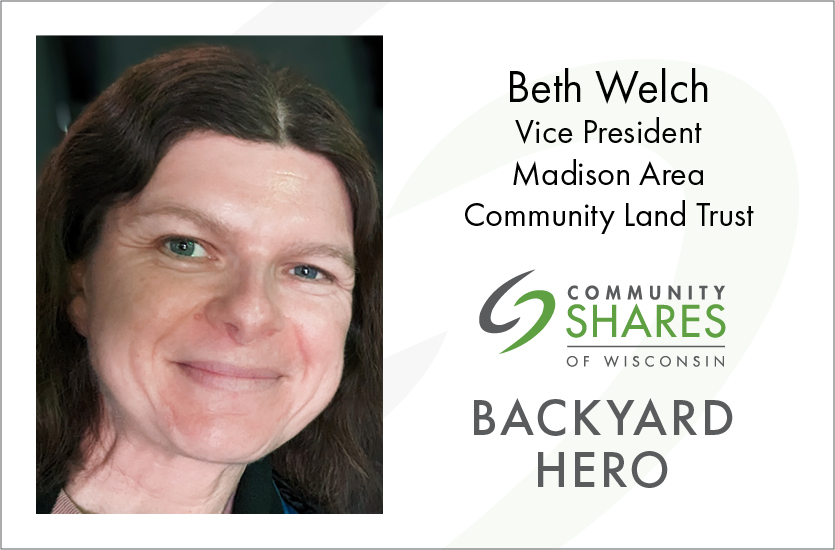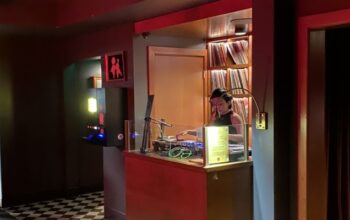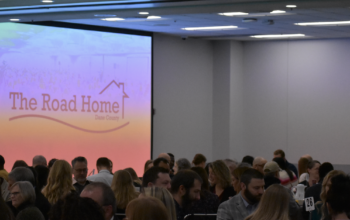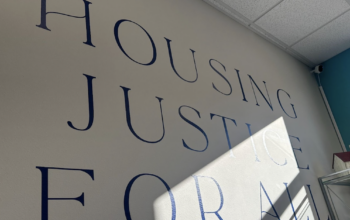Before Beth Welch started her many volunteer endeavors across Madison and her current job in social services at Options in Community Living, she was set to attend law school. She was working in the capitol as a senate page, preparing to be an attorney. However, as she witnessed senators “make bad choices,” she began doubting her chosen career path. Then, a coffee with a friend who worked at Options at the time exposed her to new possibilities.
“I just learned about how your career can be your life,” she said, “and that’s how I feel about volunteering in the community—it’s my calling.”
Options in Community Living is a Dane County nonprofit that provides supported living services for adults with intellectual and developmental disabilities. In addition to her work at Options, she is the vice president of the Madison Area Community Land Trust board, which aims to make housing more affordable for low-income and first-time homebuyers. She also volunteers with Wispact Inc., a nonprofit that aims to improve the lives of people with disabilities across the state through financial support; Lakeview Library; Troy Gardens and her cohousing community.
According to Amber Kolner of MACLT, who nominated Welch for Community Shares’ Backyard Hero Award, “she has helped rebirth the organization over the last three years, helping to ensure its success during a period of rapid growth.”
What about volunteering with MACLT and cohousing appealed to you?
I can see the impact of my time commitment. It’s easy to assess what I spend my time doing: building community, strengthening relationships, and helping people access resources. I care really deeply about my neighborhood, Northside, and Troy Gardens and co-housing and volunteering and getting a chance to spend time with my neighbors and working hard to build community for them and help make Northside a closer-knit community. It’s appealing because I get to know people better, and that’s fun for me. I learn more about where I live and what more I need to commit myself.
How does volunteering bring you joy?
I really feel strongly about building community and engaging with your neighbors authentically, and showing up. We’re all in this together. You only get one chance at this life, and I’m all in. I love my family.I love my neighbors. I believe in the golden rule.
What need do you think all these organizations fill collectively in Madison?
Right now, we’re connecting all of the co-housing communities. By connecting all of us, and then helping to grow this other community, there is going to be a natural impact, providing support to this other community as they build and grow.
In the Northside neighborhood, the needs being met are focusing on safety, helping people get connected to learning about transportation and voting and learning about different local organizations. People ask things like, “How can I volunteer?” Or, “Where do I go to get this?” It’s a lot of resource acquisition, and spreading the word about opportunities. A lot of people don’t know about the ADRC (Aging and Disability Resource Centers). A lot of people don’t know about changes in bus routes, changes in polling locations or what all you can do at the library — a lot of people didn’t know you could get vaccinated at the library, or that you could check out birding kits. So people will just contact me and ask me random questions. And because I’ve done different things and volunteered for even just one-off events, I can connect them to resources and opportunities. So it’s just connecting the dots.
What did you find most surprising about volunteering in nonprofit spaces?
People work really, really hard. For example, people don’t take a lunch break, they work in the evening, getting emails at night, showing up to council meetings. Everyone that I collaborate with, everyone I volunteer for or offer to help in some way, they’re all working so hard. There’s just not enough. Everyone needs more funding so that they can be paid more equitably. But not just that, it’s also their (the volunteers) life work. I’m shocked by the commitment and dedication. I'm always impressed.
What gives you hope for the future of Madison?
Learning that there’s continued interest in supporting more educational opportunities at community centers, more skill-building, recreational programming for youth and out-of-school time, and that there are a lot of nonprofits that are focusing on addressing all of those barriers to access to education, enrichment and inspiration that exists for low-income kids. It’s not just like, “Okay, there’s this program,” but they make sure that you get there [by assisting with] transportation. There’s more patience and grace for your performance in that space based on what your life is like. And that gives me hope that there’s a lot of education of the adults who are engaging with youth around becoming career, college and community-ready—that’s the MMSD (Madison Metropolitan School District) slogan. The adults that provide the support for that are starting to become educated from nonprofits that support skillbuilding for the youth. It gives me hope that they’re learning about how they need to change to engage authentically with the youth in the city so that they can feel like they really have a chance to learn and grow into adults here and be college, career and community ready. When I first started volunteering, there was some ignorance in a lot of the corporations and government organizations that were providing some services, but now there are a lot of nonprofits that are partnering agencies. There's just so much more collaboration.
This interview has been edited for brevity and clarity.





